
In international relations, defence diplomacy (also known as military diplomacy [1] ), refers to the pursuit of foreign policy objectives through the peaceful employment of defence resources and capabilities.

In international relations, defence diplomacy (also known as military diplomacy [1] ), refers to the pursuit of foreign policy objectives through the peaceful employment of defence resources and capabilities.
Defence diplomacy as an organizing concept for defence-related international activity has its origin in post-Cold War reappraisals of Western defence establishments, led by the United Kingdom Ministry of Defence, and was a principle “used to help the West come to terms with the new international security environment.” [2] While the term originated in the West, the conduct of defence diplomacy is by no means confined to Western countries. [3]
While there is not yet a broadly accepted definition of defence diplomacy, it can be understood as the peaceful application of resources from across the spectrum of defence, to achieve positive outcomes in the development of a country's bilateral and multilateral relationships. "Military diplomacy" is a subset that tends to refer only to the role of military attachés and their associated activity. Defence diplomacy does not include military operations but subsumes such other defence activity as international personnel exchanges, ship and aircraft visits, high-level engagement (such as ministers [4] and senior defence personnel), bilateral meetings and staff talks, [5] training and exercises, regional defence forums (such as Shangri-La Dialogue, Halifax Forum), outreach, confidence and security building measures, and non-proliferation activities.
The United Kingdom identified defence diplomacy as one of the military's eight defence missions, and aims to “dispel hostility, build and maintain trust and assist in the development of democratically accountable armed forces” to make a “significant contribution to conflict prevention and resolution.” [6] Defence diplomacy is often developed and implemented in close coordination with the foreign and development ministries to ensure coherence and focus across government.
Major General Ng Chee Khern, Air Force Chief of the Republic of Singapore, summed it up thus: "In defence diplomacy, we seek to develop mutually beneficial relationships with friendly countries and armed forces to contribute to a stable international and regional environment." [7]
Defence diplomacy is often associated with conflict prevention [8] and security sector reform. [9] It is distinct from the concept of gunboat diplomacy, which is generally understood to be motivated by a desire to intimidate potential adversaries.

Singapore maintains diplomatic relations with 189 UN member states. The three exceptions are the Central African Republic, Monaco and South Sudan.

Gunboat diplomacy is the pursuit of foreign policy objectives with the aid of conspicuous displays of naval power, implying or constituting a direct threat of warfare should terms not be agreeable to the superior force.

The Five Power Defence Arrangements (FPDA) are a series of bilateral defence relationships established by a series of multi-lateral agreements between Australia, Malaysia, New Zealand, Singapore, and the United Kingdom, all of which are Commonwealth members that once belonged to the British Empire.
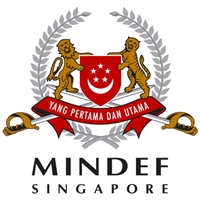
The Ministry of Defence is a ministry of the Government of Singapore responsible for overseeing the national defence of Singapore.

The Government of Singapore consists of several departments, known as ministries and statutory boards in Singapore. Ministries are led by a member of the Cabinet and deal with state matters that require direct political oversight. The member of the Cabinet heading the ministry is known as the minister, who is supported by a junior minister known as minister of state in Singapore. The administrative management of the ministry is led by a senior civil servant known as permanent secretary.

Total Defence is Singapore's whole-of-society national defence concept, based on the premise that every aspect of society contributes to the collective defence of the state.
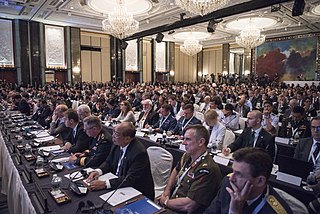
The IISS Asia Security Summit: The Shangri-La Dialogue (SLD) is a "Track One" inter-governmental security conference held annually in Singapore by an independent think tank, the International Institute for Strategic Studies (IISS). The dialogue is commonly attended by defence ministers, permanent heads of ministries and military chiefs of mostly Asia-Pacific states. The forum's name is derived from the Shangri-La Hotel in Singapore, where it has been held since 2002.

The Palestinian National Security Forces are the paramilitary security forces of the Palestinian National Authority. The name may either refer to all National Security Forces, including some special services but not including the Interior Security Forces, the Presidential Guard and General Intelligence, or refer to the main force within the National Security Forces. Since the signing of the Oslo Accords, these forces operate in areas controlled by the PNA. In 2003, the organizations were merged into the Palestinian Security Services.

The Security and Intelligence Division (SID) is the foreign intelligence service of Singapore under the purview of the Ministry of Defence (MINDEF), tasked to gather, process, and analyse information from around the world that concerns the national security and national interests of Singapore.
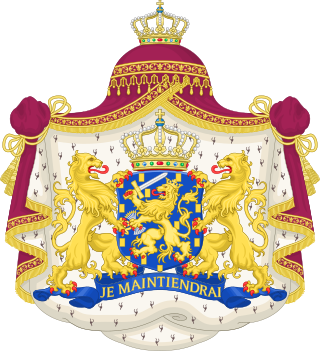
The Ministry of Defence is the Dutch Ministry responsible for the armed forces of the Netherlands and Veterans Affairs. The Ministry was created in 1813 as the "Ministry of War" and in 1928 was combined with the "Ministry of the Navy". After World War II in the ministries were separated again, in this period the Minister of War and Minister of the Navy were often the same person and the State secretary for the Navy was responsible for daily affairs of the Royal Dutch Navy. In 1959 the ministries were merged. The Ministry is headed by the Minister of Defence, currently Kajsa Ollongren, assisted by the Chief of the Defence of the Netherlands, Onno Eichelsheim since April 2021.

Ng Chee Khern is a Singaporean civil servant and former major-general who served as Chief of Air Force between 2006 and 2009. He previously served as Permanent Secretary under the Prime Minister's Office, and Chairman of the Government Technology Agency. He was appointed Permanent Secretary (Manpower) in April 2022.

Russia–Singapore relations are the bilateral foreign relations between the two countries, Russia and Singapore. Russia has an embassy in Singapore. Singapore has an embassy in Moscow. Both countries are full members of APEC. Relations between the 2 countries have been friendly since bilateral ties were established. Due to the 2022 Russian invasion of Ukraine, relations became very tense after Singapore imposed sanctions against Russia. Russia placed Singapore on a list of "unfriendly countries" along with Taiwan, Japan, South Korea, the United States, European Union members, NATO members, Canada, Australia, New Zealand, Norway, Switzerland, Micronesia and Ukraine.
Military policy is public policy dealing with multinational security and the military. It comprises the measures and initiatives that governments do or do not take in relation to decision-making and strategic goals, such as when and how to commit national armed forces.

The Ministry of Defence of the Republic of Azerbaijan or MN is an Azerbaijani government agency that is associated with the Azerbaijani military. The ministry is responsible for keeping Azerbaijan defended against external threats, preserving its territorial integrity, waging war on behalf of Azerbaijan, and the surveillance of the Azerbaijani sector of the Caspian Sea sea and airspace. The Minister of Defense is appointed and removed from the post by the Commander-in-chief of the Azerbaijani Armed Forces, the President of Azerbaijan.

The Chief of Defence Force is the head of the Singapore Armed Forces (SAF), who holds the rank of Lieutenant-General or Vice-Admiral. The Chief of Defence Force also serves as the aide-de-camp to the president of Singapore. The current Chief of Defence Force is Aaron Beng.
The SAF Scholarship, formerly known as the SAF Overseas Scholarship (SAFOS), is a scholarship conferred by the Public Service Commission (PSC). The scholarship is second in prestige to the President's Scholarship.
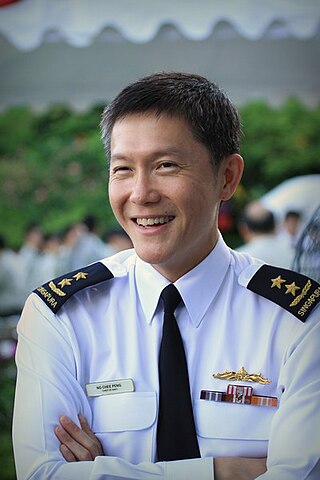
Ng Chee Peng is a Singaporean civil servant and former two-star rear-admiral who served as Chief of Navy between 2011 and 2014.

Ng Chee Meng is a Singaporean politician, union leader and former lieutenant-general who has been serving as Secretary-General of the National Trades Union Congress since 2018. A member of the governing People's Action Party (PAP), he was the Member of Parliament (MP) representing the Punggol North division of Pasir Ris–Punggol GRC between 2015 and 2020. He served as Minister for Education (Schools) between 2015 and 2018, and Minister in the Prime Minister's Office between 2018 and 2020.
The Directorate of Cooperation of Security and Defence is a structure belonging to the French Ministry of Foreign Affairs and International Development, intended to develop international structural cooperation in the fields of defense, internal security, and civil protection.
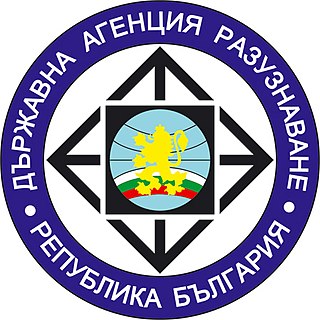
The State Intelligence Agency (SIA) is a Bulgarian foreign intelligence service, which obtains, processes, analyzes and provides the state leadership with intelligence, assessments, analyses and prognoses, related to the national security, interests and priorities of the Republic of Bulgaria.